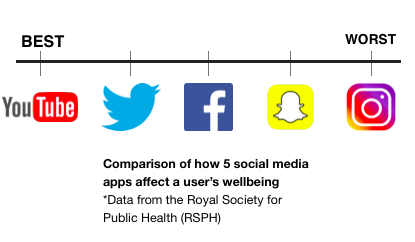No More Snaps

I was distracted. From school, from work, from conversations with friends; I was distracted all because of an application that had priority over many things that should’ve been more important to me. This app, called Snapchat, grabbed my attention roughly three years ago as a fun, quick, and easy way to communicate with friends. Continuously, new updates such as scores (the amount of snapchats sent and received), geofilters (for users to know the location of a friend), and streaks (how many days in a row two friends have snapchatted each other) only attracted me to Snapchat even more.
All social media applications are instruments. However, they have the power to become more destructive than beneficial. While they are a great way for companies and individuals to communicate ideas, they also allow people to be tricked by the false sense of connection.
Unfortunately, I did not realize how highly addictive Snapchat was for me and soon enough, I was on it too often. For the last three years, I have spent hours everyday sending and receiving pointless pictures of merely faces.
Snapchat works in a way that is constantly rewarding its users, which makes it hard for them to feel guilty about using app. For example, a variety of emojis represent awards such as being on the best friends list, carrying a streak,
or adding a new friend. Snapchatting is a quick, 10 second process that shouldn’t take much time at all, but the cycle of sending and receiving snapchats in unending. Not to mention, many users hold streaks with at least 20 others.
As senior year began for me, I was determined to prevent Snapchat from allowing me to procrastinate every night on homework. Not only was I aware of the potential threat, but teachers caught on to the trend as well. Last year, students were allowed to keep their phones face down in the corner of their desk, but now many teachers encourage students to keep the devices in our backpacks to reduce the possible distractions. They know that when a new Snapchat appears, it is quite possible that the student is not thinking about the teacher anymore.
Therefore, I knew if I was going to delete it, it had to be before the late nights doing homework and studying.
So, I finally pulled the plug. Along with deleting the app, I lost 20 streaks I cared way too much about, one being longer than 600 days. I compiled an embarrassing large score of 289,010 over three years.
For the first few days, I felt like I was making a mistake. Instantly, I felt anxious and out of the loop on what was going on around me. In exchange for Snapchat, I kept checking instagram in order to still feel connected.
As time has gone on, I have slowly started to use my phone less and be more productive. When addicted to Snapchat, I didn’t have enough self-discipline to get off for a long period of time. I felt like the app was controlling me more than I was controlling it. I allowed Snapchat to distract me from things that should be more important to me than the app. Now, it has been easier to use social media without feeling committed to it and distracted from it.



